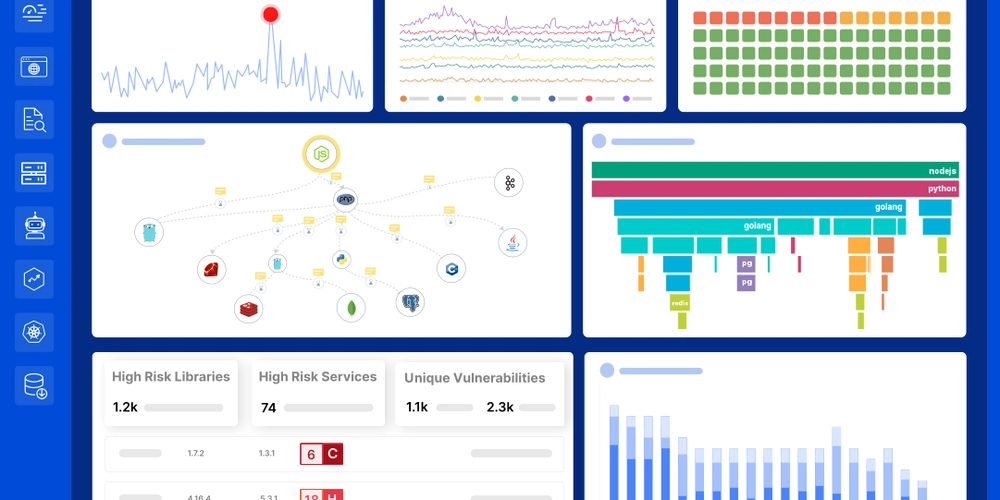Expired SSL Certificate? Understand the Impact and Renewal Steps
Reason for SSL Certificate Expiration Compliance and Regulatory Requirements Expiration of SSL certificates assists organizations in meeting the company's legal and other requirements, such as regulatory compliance and standards. These and other rules and norms, including the Payment Card Industry Data Security Standard (PCI DSS) and General Data Protection Regulation (GDPR), require the updates and renewals of security certificates on the regular basis to provide proper protection for the sensitive data. These regulations make certain that organizations take positive measures to adopt up to date securities; and the periodic renewal of SSL certificates helps meet these requirements. Updates It means that the expiration of the SSL certificate contributes to compliance with the SSL best practices. The Expiration feature enables organizations to force comprehensive renewal of certificates at well-defined intervals so that the certificate is always as optimal as possible in terms of configuration standards and safety features. It also helps in maintaining compliance with regulations and standards, the existing, for instance, in CA/Browser Forum - which states the maximum allowance of SSL certificates' validity period. This uniformity contributes to keeping the internet secure as a necessary means of communication in the contemporary world. Security Development There is a need to have SSL certificates expire to improve on the security that is provided. Eventually the cryptographic algorithms employed in SSL certificates are likely to become compromised through improvement in computational capability and development in the field of cryptology. This is because expiration and renewal are a way of maintaining that the certificates only utilize the most secure algorithms currently available. Furthermore, it is also dangerous because if the private key is stolen it can be used in decrypting secure communications. Shorter life spans bring into question how much destruction one can do with such a key. Administrative Control The use of expiration dates assists in retaining control of the certificates by the administrative authorities. As for SSL certificates, they authenticate that the holder of the certificate controls the domain. The fact that SSL certificates require annual renewal means that the issuing CA can always check domain ownership and any other verification requirements. This process aids in avoiding long-term illegitimate use since certificates that don't expire are more vulnerable to fraudsters in activities such as phishing or malicious uses, among others. Operational Reasons From the operational point of view, the use of regular renewal intervals of digital certificates allows for better management of their lifecycle. It presents moments when they could review their security strategies and framework as well. In addition, over a period incorporating technology changes, new standards and protocols (for instance, moving from SSL to TLS) demand new certificates. The relative shortening of expiration with rewrite creates more favorable conditions for transition to more secure protocols. Security Risks of an Expired SSL Certificate Data Exposure The greatest danger associated with the expiry of SSL certificates is that it exposes important information. It is an SSL/TLS certificate that ensures that any information that is passed between a user on their browser and the website's server is encrypted and cannot be intercepted by anyone. When a certificate expires, this form of encryption ends, and data including passwords, demographic information, and transaction details are exposed to interception and theft. This can result in fake accounts in his name, loss of his money, and other nasty security compromises. Man-in-the-Middle (MITM) Attacks An expired SSL certificate exposes the site to man-in-the-middle attack in which the attacker listens in to the response and alters every message between the user and the server. If the connection does not have an SSL certificate, as it should be, then attackers can easily listen to the data transmitted and obtain the desired information or even inject their content in the line. This can result in the compromising of the information and loss of its secure and private nature, thus incurring high risks in its security and privacy aspects. Phishing Attacks A damaged SSL certificate is a barrier to the trust users put into a website and hampers its functionality. This is because hackers can easily provide domains that are resembling genuine ones, albeit not possessing a genuine SSL certificate. Those users who used to look for SSL indicators like a padlock or 'https' in the address bar, may be even being deceived if these signs are missing or give warnings. This opens the door for users to be phished since they will innocently hand over sensitive information to a fraudulent entity. Loss of Trust and Reputation Whenever users come across vari

Reason for SSL Certificate Expiration
Compliance and Regulatory Requirements
Expiration of SSL certificates assists organizations in meeting the company's legal and other requirements, such as regulatory compliance and standards.
These and other rules and norms, including the Payment Card Industry Data Security Standard (PCI DSS) and General Data Protection Regulation (GDPR), require the updates and renewals of security certificates on the regular basis to provide proper protection for the sensitive data.
These regulations make certain that organizations take positive measures to adopt up to date securities; and the periodic renewal of SSL certificates helps meet these requirements.
Updates
It means that the expiration of the SSL certificate contributes to compliance with the SSL best practices.
The Expiration feature enables organizations to force comprehensive renewal of certificates at well-defined intervals so that the certificate is always as optimal as possible in terms of configuration standards and safety features.
It also helps in maintaining compliance with regulations and standards, the existing, for instance, in CA/Browser Forum - which states the maximum allowance of SSL certificates' validity period.
This uniformity contributes to keeping the internet secure as a necessary means of communication in the contemporary world.
Security Development
There is a need to have SSL certificates expire to improve on the security that is provided. Eventually the cryptographic algorithms employed in SSL certificates are likely to become compromised through improvement in computational capability and development in the field of cryptology.
This is because expiration and renewal are a way of maintaining that the certificates only utilize the most secure algorithms currently available.
Furthermore, it is also dangerous because if the private key is stolen it can be used in decrypting secure communications. Shorter life spans bring into question how much destruction one can do with such a key.
Administrative Control
The use of expiration dates assists in retaining control of the certificates by the administrative authorities. As for SSL certificates, they authenticate that the holder of the certificate controls the domain.
The fact that SSL certificates require annual renewal means that the issuing CA can always check domain ownership and any other verification requirements.
This process aids in avoiding long-term illegitimate use since certificates that don't expire are more vulnerable to fraudsters in activities such as phishing or malicious uses, among others.
Operational Reasons
From the operational point of view, the use of regular renewal intervals of digital certificates allows for better management of their lifecycle. It presents moments when they could review their security strategies and framework as well.
In addition, over a period incorporating technology changes, new standards and protocols (for instance, moving from SSL to TLS) demand new certificates.
The relative shortening of expiration with rewrite creates more favorable conditions for transition to more secure protocols.
Security Risks of an Expired SSL Certificate
Data Exposure
The greatest danger associated with the expiry of SSL certificates is that it exposes important information.
It is an SSL/TLS certificate that ensures that any information that is passed between a user on their browser and the website's server is encrypted and cannot be intercepted by anyone.
When a certificate expires, this form of encryption ends, and data including passwords, demographic information, and transaction details are exposed to interception and theft.
This can result in fake accounts in his name, loss of his money, and other nasty security compromises.
Man-in-the-Middle (MITM) Attacks
An expired SSL certificate exposes the site to man-in-the-middle attack in which the attacker listens in to the response and alters every message between the user and the server.
If the connection does not have an SSL certificate, as it should be, then attackers can easily listen to the data transmitted and obtain the desired information or even inject their content in the line.
This can result in the compromising of the information and loss of its secure and private nature, thus incurring high risks in its security and privacy aspects.
Phishing Attacks
A damaged SSL certificate is a barrier to the trust users put into a website and hampers its functionality.
This is because hackers can easily provide domains that are resembling genuine ones, albeit not possessing a genuine SSL certificate.
Those users who used to look for SSL indicators like a padlock or 'https' in the address bar, may be even being deceived if these signs are missing or give warnings.
This opens the door for users to be phished since they will innocently hand over sensitive information to a fraudulent entity.
Loss of Trust and Reputation
Whenever users come across various security notices, such as expired SSL certificates, their confidence in the website is likely to plummet.
Present day browsers provide clear notifications when accessing such sites and recommend that the user does not go any further because it is unsafe.
This not only prevents the users from accessing the site but also puts a negative light on the website in general.
When user trust is eroded, one can expect negative long term effects such as high attrition rates, low customer loyalty and the ultimate stigma of a bad reputation.
Legal and Compliance Issues
Most industries are bound by legal and industry rules and regulations that address the need for secured communication for information that is sensitive.
For instance, the Payment Card Industry Data Security Standard (PCI DSS) requirements state that cardholder data must be encrypted.
Keep Reading - https://cheapsslweb.com/blog/what-happens-when-your-ssl-certificate-expires-how-to-renew/









































































































































































![[The AI Show Episode 146]: Rise of “AI-First” Companies, AI Job Disruption, GPT-4o Update Gets Rolled Back, How Big Consulting Firms Use AI, and Meta AI App](https://www.marketingaiinstitute.com/hubfs/ep%20146%20cover.png)

























































































































![[DEALS] The Premium Python Programming PCEP Certification Prep Bundle (67% off) & Other Deals Up To 98% Off – Offers End Soon!](https://www.javacodegeeks.com/wp-content/uploads/2012/12/jcg-logo.jpg)
















































































































































































































































![Honor 400 series officially launching on May 22 as design is revealed [Video]](https://i0.wp.com/9to5google.com/wp-content/uploads/sites/4/2025/05/honor-400-series-announcement-1.png?resize=1200%2C628&quality=82&strip=all&ssl=1)














![Beats Studio Pro Wireless Headphones Now Just $169.95 - Save 51%! [Deal]](https://www.iclarified.com/images/news/97258/97258/97258-640.jpg)






































































































